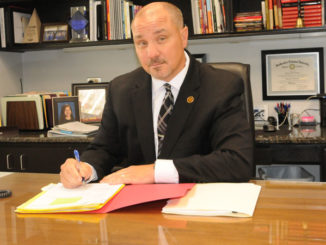
As tens of thousands fled New Orleans and Southeast Louisiana ahead of Hurricane Katrina, they left behind jobs to which many of them expected to return a few days later-just as they did after Hurricane Ivan the year before.
As we now know, that did not happen. As it became painfully obvious that they weren’t going back to work any time soon, many began filing unemployment compensation (UC) claims-some for the first time ever. Fortunately, Louisiana had the largest UC Trust Fund in the country at $1.5 billion. This healthy balance was the result of concerted efforts by the Louisiana Association of Business and Industry (LABI) and the Louisiana AFL-CIO to assure the Fund’s solvency. The value of those efforts became clear as, in the weeks immediately following Hurricanes Katrina and Rita, the volume of UC claims swelled. Weekly claims went from about 9,000 the week before Hurricane Katrina to over 225,000 the last week of October when the volume reached its zenith. Benefit payout in that week alone approached $250 million.
Two weeks after Katrina raked Louisiana’s coastline, Governor Blanco issued an executive order declaring that benefits were to be awarded claimants from the impacted parishes regardless of their eligibility. About a month later, she issued a second order covering claimants from parishes ravaged by Hurricane Rita.
The executive orders prohibited employers from challenging these claims, even in cases where the claimant’s job had never ceased. The governor recognized that it would be unfair to automatically award benefits regardless of claimant eligibility and then charge those benefits to employers. So, she proclaimed in her orders that “all such benefits shall be against the social charge rate and not against a specific employer.”
Under current law, a special account exists for recouping the cost of benefits not charged to a specific employer. The cost is instead spread among all Louisiana businesses through the social charge tax that is part of their quarterly UC tax.
The consequence of the governor’s executive orders is significant. The cost of claims arising from those orders could be as high as $700 million. Unless the law is changed, businesses will get a nasty surprise next year. By law, this $700 million must be assessed through their 2007 social charge tax. To appreciate the impact of this, consider that the social charge tax rate for 2006 is 20 percent. If $700 million were also factored into the 2006 rate, it would be 692 percent. Therefore, a business currently paying a social charge tax of $84 per employee this year would pay $2,905 per employee next year.
It is, of course, unreasonable to expect businesses to pay this massive tax increase, especially when they are already burdened with other costs attributable to the hurricanes. Imposition of this tax obviously wouldn’t help Louisiana’s economic recovery. So, business and industry representatives are working on an alternative approach.
One approach might be to gradually refund the $700 million liability over time. Another may be to legislatively forgive the liability, or a portion of it. However, the situation is not that simple. The law – – for good reason – – requires the maintenance of a minimum balance in our state UC Trust Fund. If the Fund falls below that level because a portion of the liability is not restored, it could trigger higher UC taxes and lower benefits.
One thing is certain: Legislation to fix this problem must pass in the upcoming regular session. The trick will be balancing Louisiana’s economic recovery with the UC Trust Fund’s solvency.




Be the first to comment